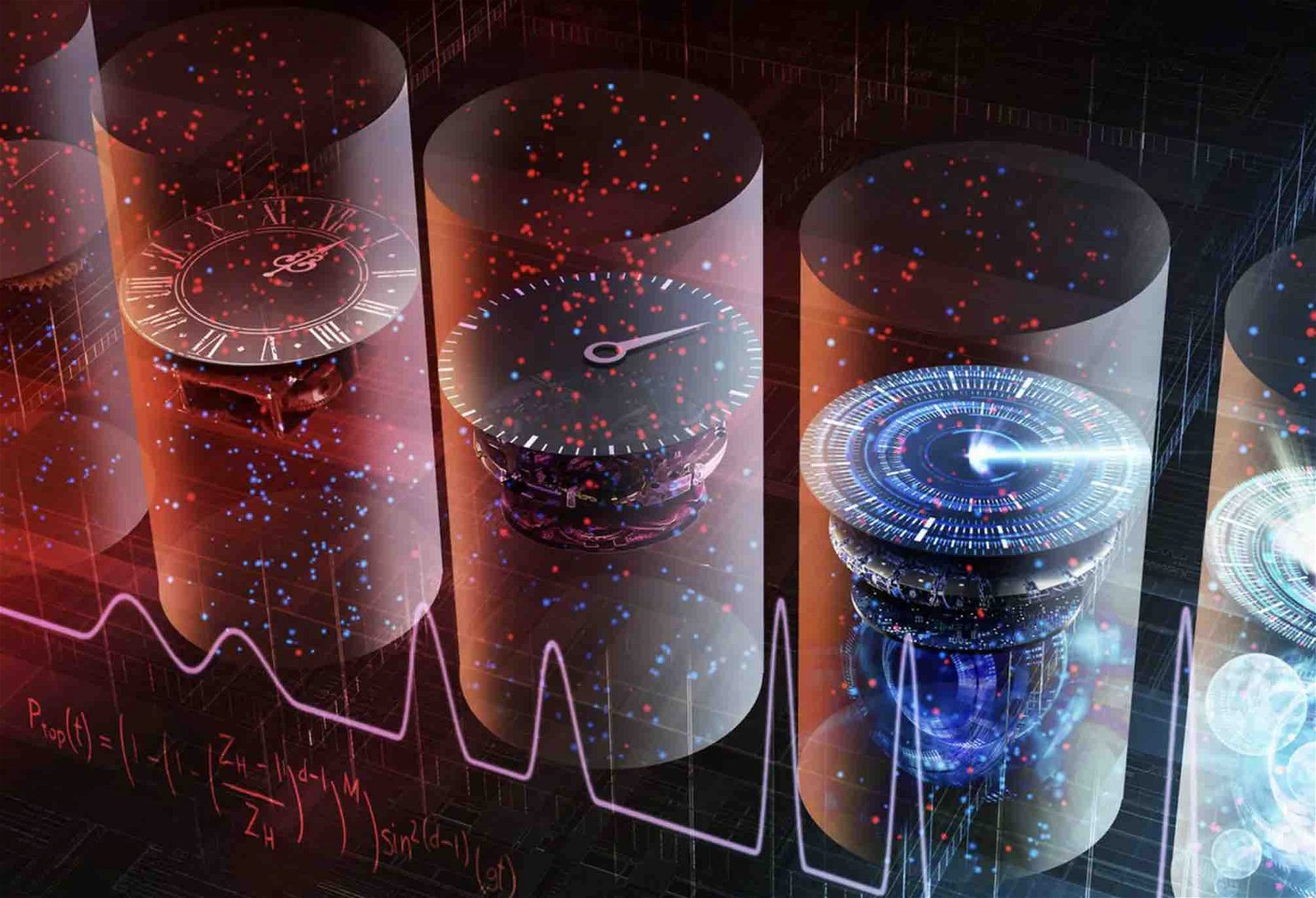A team of physicists in Austria reports they have reconciled the third law of thermodynamics with quantum physics, in new research that they say proves absolute zero is theoretically attainable.
In physics, when an object is cooled to absolute zero—the coldest temperature that is theoretically possible—its atoms will cease to move, stopping the motion of particles that are responsible for the generation of heat. This is a simple way of describing the third law of thermodynamics, which states that the entropy of a system nears a constant value the closer its temperature comes to absolute zero.
The lowest attainable temperature is -273.15 degrees Celsius (-459.67 Fahrenheit), although the third law of thermodynamics governs that it is impossible actually to cool an object to this extremely low temperature. However, recent investigations by a team of researchers at the Vienna University of Technology (TU Wein) now suggest that in theory, it is possible to reach absolute zero, thanks to the development of what they call a “quantum version” of this famous thermodynamic law.
Quantum particles are in their lowest energetic state when they reach absolute zero, allowing their state to be precisely known and removing any information about their previous state. The cooling of particles to their lowest energy is comparable to deleting information when we operate a computer, representing a sort of continuity between thermodynamics and information theory.
The Landauer principle, as it is known in the field of information theory, dictates that once irreversible changes occur with information being held on a computer, a very specific amount of energy is required, which can be measured with the dissipation of heat. By contrast, in thermodynamics, there is an infinite amount of energy required to drop temperatures down to absolute zero. In other words, deleting information and cooling to absolute zero theoretically represent the same function in physics, yet they obviously do not complement each other perfectly.
According to the TU Wein research team, this problem stems from the beginnings of our modern understanding of thermodynamics in the 19th century, which related to the genesis of many technologies and devices still in use today, like refrigerators, as well as things like steam engines. When our concepts of thermodynamics were initially derived from our understanding of such objects, scientists were unaware of the quantum world and theories pertaining to it.
Hence, in order to fully understand the thermodynamics of individual particles, a more complete understanding of the interaction between thermodynamics and quantum physics is required.
“Thermodynamics connects our knowledge of the world to our capability to manipulate and thus to control it,” members of the Austrian research team write in a newly published paper describing their work.
“This crucial role of control is exemplified by the third law of thermodynamics, Nernst’s unattainability principle, which states that infinite resources are required to cool a system to absolute zero temperature.”
However, the TU Wein research team, led by Marcus Huber, says they were able to advance our understanding of this famous mainstay of thermodynamics by first recognizing that reaching absolute zero doesn’t really require an infinite amount of energy.
“It is also possible with finite energy,” Huber explained in a statement, though adding that with finite energy, an infinitely long period of time is thus required. Although theoretically compatible with classical dynamics, Huber and the team say that there is more required for this pairing between thermodynamics and the quantum world.
“We found that quantum systems can be defined that allow the absolute ground state to be reached even at finite energy and in finite time,” Huber says.
Huber adds that “none of us had expected that.”
However, in the case of these quantum systems, another significant property was observed: for finite amounts of time and energy to produce an absolute ground state also requires infinite complexity. This means that if researchers were able to harness infinitely precise control over an infinite set of details contained within a quantum system, then a quantum object could indeed be cooled to absolute zero using finite amounts of energy and within a finite period of time.
Such conditions would be difficult to attain in actual practice, of course, and are comparable to reaching an infinite amount of time or energy.
Temperature is vital to the operation of quantum technologies since the greater the temperature of a system is, the more likely that a quantum state can break and become useless in technical applications. Huber says that this is why understanding the connection between thermodynamics and quantum theory is of such great significance, especially with regard to current efforts involving the development of quantum computers.
“There is a lot of interesting progress in this area at the moment,” Huber adds.
“It is slowly becoming possible to see how these two important parts of physics intertwine.”
Huber and the TU Wein team’s paper, “Landauer Versus Nernst: What is the True Cost of Cooling a Quantum System?,” was published in the journal PRX Quantum on March 27, 2023.
Micah Hanks is the Editor-in-Chief and Co-Founder of The Debrief. He can be reached by email at micah@thedebrief.org. Follow his work at micahhanks.com and on Twitter: @MicahHanks.

